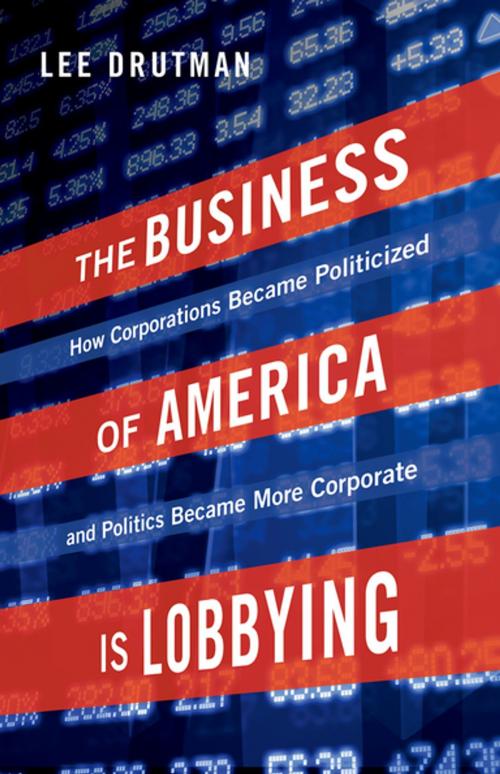The Business of America is Lobbying
How Corporations Became Politicized and Politics Became More Corporate
Nonfiction, Social & Cultural Studies, Political Science, Politics, Practical Politics, Government| Author: | Lee Drutman | ISBN: | 9780190215538 |
| Publisher: | Oxford University Press | Publication: | March 19, 2015 |
| Imprint: | Oxford University Press | Language: | English |
| Author: | Lee Drutman |
| ISBN: | 9780190215538 |
| Publisher: | Oxford University Press |
| Publication: | March 19, 2015 |
| Imprint: | Oxford University Press |
| Language: | English |
Corporate lobbyists are everywhere in Washington. Of the 100 organizations that spend the most on lobbying, 95 represent business. The largest companies now have upwards of 100 lobbyists representing them. How did American businesses become so invested in politics? And what does all their money buy? Drawing on extensive data and original interviews with corporate lobbyists, The Business of America is Lobbying provides a fascinating and detailed picture of what corporations do in Washington, why they do it, and why it matters. Prior to the 1970s, very few corporations had Washington offices. But a wave of new government regulations and declining economic conditions mobilized business leaders. Companies developed new political capacities, and managers soon began to see public policy as an opportunity, not just a threat. Ever since, corporate lobbying has become increasingly more pervasive, more proactive, and more particularistic. Lee Drutman argues that lobbyists drove this development, helping managers to see why politics mattered, and how proactive and aggressive engagement could help companies' bottom lines. All this lobbying doesn't guarantee influence. Politics is a messy and unpredictable bazaar, and it is more competitive than ever. But the growth of lobbying has driven several important changes that make business more powerful. The status quo is harder to dislodge; policy is more complex; and, as Congress increasingly becomes a farm league for K Street, more and more of Washington's policy expertise now resides in the private sector. These and other changes increasingly raise the costs of effective lobbying to a level only businesses can typically afford. Lively and engaging, rigorous and nuanced, The Business of America is Lobbying will change how we think about lobbying-and how we might reform it.
Corporate lobbyists are everywhere in Washington. Of the 100 organizations that spend the most on lobbying, 95 represent business. The largest companies now have upwards of 100 lobbyists representing them. How did American businesses become so invested in politics? And what does all their money buy? Drawing on extensive data and original interviews with corporate lobbyists, The Business of America is Lobbying provides a fascinating and detailed picture of what corporations do in Washington, why they do it, and why it matters. Prior to the 1970s, very few corporations had Washington offices. But a wave of new government regulations and declining economic conditions mobilized business leaders. Companies developed new political capacities, and managers soon began to see public policy as an opportunity, not just a threat. Ever since, corporate lobbying has become increasingly more pervasive, more proactive, and more particularistic. Lee Drutman argues that lobbyists drove this development, helping managers to see why politics mattered, and how proactive and aggressive engagement could help companies' bottom lines. All this lobbying doesn't guarantee influence. Politics is a messy and unpredictable bazaar, and it is more competitive than ever. But the growth of lobbying has driven several important changes that make business more powerful. The status quo is harder to dislodge; policy is more complex; and, as Congress increasingly becomes a farm league for K Street, more and more of Washington's policy expertise now resides in the private sector. These and other changes increasingly raise the costs of effective lobbying to a level only businesses can typically afford. Lively and engaging, rigorous and nuanced, The Business of America is Lobbying will change how we think about lobbying-and how we might reform it.















